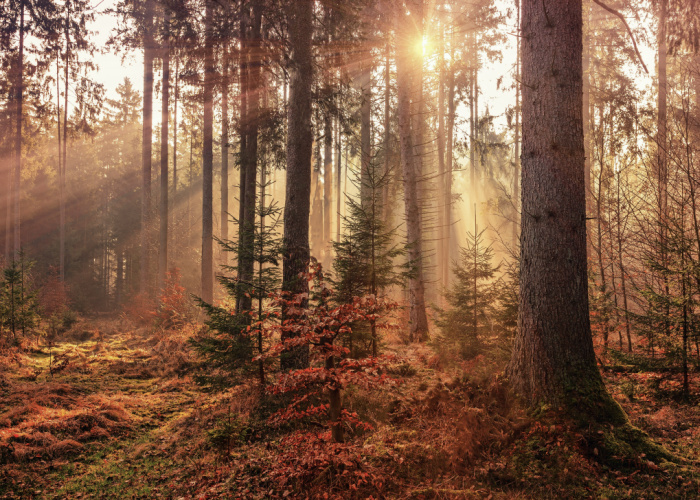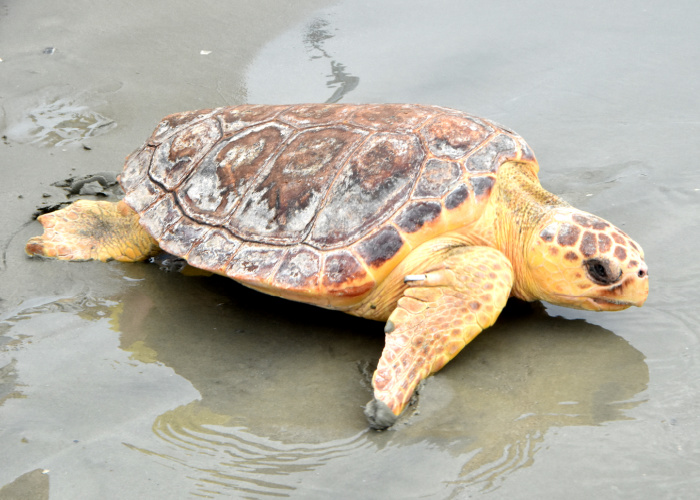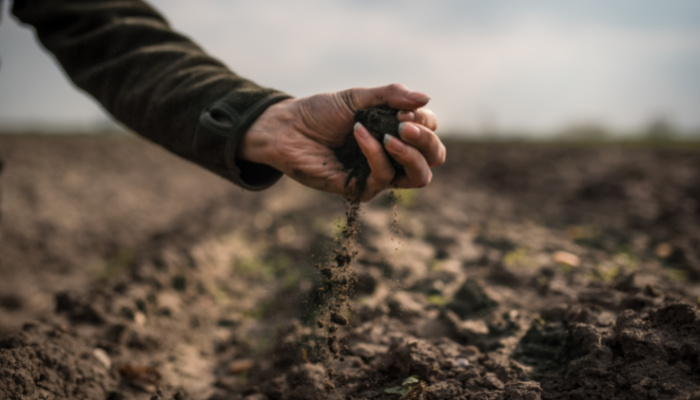Take a step outside and close your eyes. All around, nature welcomes you. Birds call out with rhythmic chirps and caws. Trees signal their presence as gusts of wind whistle through their branches. The air offers a sweet whiff of blooming honeysuckle and jasmine, or a briny scent of pluff mud and seawater. Now look down. Beneath your feet, soil is hard at work grounding habitats and wildlife and combating climate change. But how?
Sifting Through Soil
Soil is the largest terrestrial carbon sink we have, meaning it absorbs more carbon than it releases. Just as the ocean works in tandem with plankton to produce oxygen and store carbon, soil works alongside forests and other foliage to do the same. It’s a mixture of organic matter, minerals, air and water. Which of these is central to sequestering (or storing) carbon? Organic matter.

Once-living items — like plants, animals, food scraps and more — comprise organic matter. All organic matter naturally holds carbon, and decomposes in due time. In soil, this process is expedited thanks to the crawly critters within it (including earthworms). These animals use organic matter as a food source, in turn breaking it down and transforming it into what we know as compost. Carbon becomes buried underground, alleviating its absorption into the atmosphere.
Compost: Soil’s Black Gold
Compost looks similar to everyday soil, but with a darker hue, earning the nickname “black gold.” Not only is it rich in nutrients, but it helps prevent erosion by transforming the soil it encapsulates. For light and sandy soil, it binds together to retain water and form solid ground. For heavier soil, it creates permeability and a place for water (like storm runoff) to drain into instead of rushing over the surface.
Keeping compost in the soil is critical for carbon storage and erosion control. However, if organic matter doesn’t even make it to the soil to begin with, but instead ends up bogging down landfills, we lose the influential benefits the compost offers. And of course, that carbon-loaded organic matter won’t be buried below the surface and can then release greenhouse gases into the atmosphere, contributing to a warming climate.
Compost Can Help Sea Turtles, Too
Compost can affect sea turtles in a way that you might not expect. Sea turtle sex is determined by sand temperature, so a warming climate will impact their population long term. Eggs incubating in warmer sand produce females, whereas eggs incubating in cooler sand produce males. (Hence the phrase, hot chicks and cool dudes.) This becomes a major issue years later, when there’s an imbalance of reproductive females and males.

Craft a Composting Plot
Composting can seem complicated, but using these simple steps and proper care, you’ll be on your way to creating nutrient-rich compost!
1. Find a shady area in your yard that has access to water. Fence off a 3-foot by 3-foot square or use a container of similar size.
2. Combine and mix two-parts brown matter (like soil, dead leaves, small pieces of cardboard and paper) to one-part green matter (like eggshells, fruits, vegetables, coffee and tea grounds, houseplants, grass clippings, etc.).
3. Keep your compost damp and mix it frequently to allow the materials to break down; this will also prevent odors and unwelcome critters.
4. You’ll know the mixture is ready when it looks and smells like rich, dark soil. Use this in your garden or scatter around trees and shrubs.
5. Now pat yourself on the back for helping combat climate change from the comfort of your home!
Contribute to Charleston Composts
Sometimes, the barrier to composting is a lack of space. Here in Charleston County, there’s currently a free pilot program that allows residents to take food waste to designated drop-off sites. After signing up and receiving a short training, you can begin to set aside your organic food waste in a sealed, reusable container or storing it in the freezer or fridge for drop off; it’s as simple as that!

Want to participate in the Charleston Composts pilot program?
Published April 8, 2022


